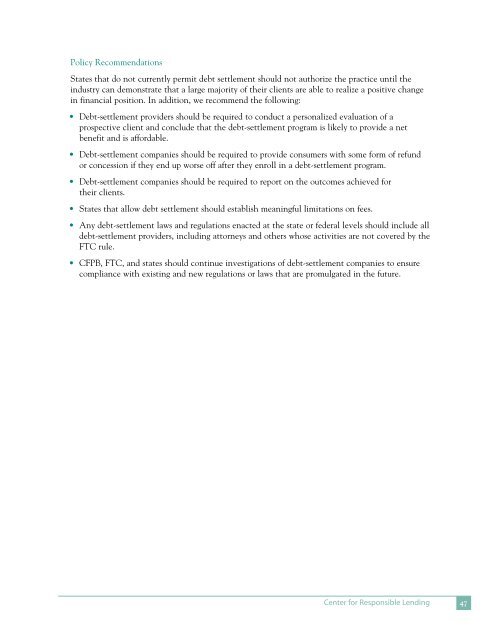Create successful ePaper yourself
Turn your PDF publications into a flip-book with our unique Google optimized e-Paper software.
Policy Recommendations<br />
States that do not currently permit debt settlement should not authorize the practice until the<br />
industry can demonstrate that a large majority <strong>of</strong> their clients are able to realize a positive change<br />
in financial position. In addition, we recommend the following:<br />
• Debt-settlement providers should be required to conduct a personalized evaluation <strong>of</strong> a<br />
prospective client and conclude that the debt-settlement program is likely to provide a net<br />
benefit and is affordable.<br />
• Debt-settlement companies should be required to provide consumers with some form <strong>of</strong> refund<br />
or concession if they end up worse <strong>of</strong>f after they enroll in a debt-settlement program.<br />
• Debt-settlement companies should be required to report on the outcomes achieved for<br />
their clients.<br />
• States that allow debt settlement should establish meaningful limitations on fees.<br />
• Any debt-settlement laws and regulations enacted at the state or federal levels should include all<br />
debt-settlement providers, including attorneys and others whose activities are not covered by the<br />
FTC rule.<br />
• CFPB, FTC, and states should continue investigations <strong>of</strong> debt-settlement companies to ensure<br />
compliance with existing and new regulations or laws that are promulgated in the future.<br />
Center for Responsible Lending 47


